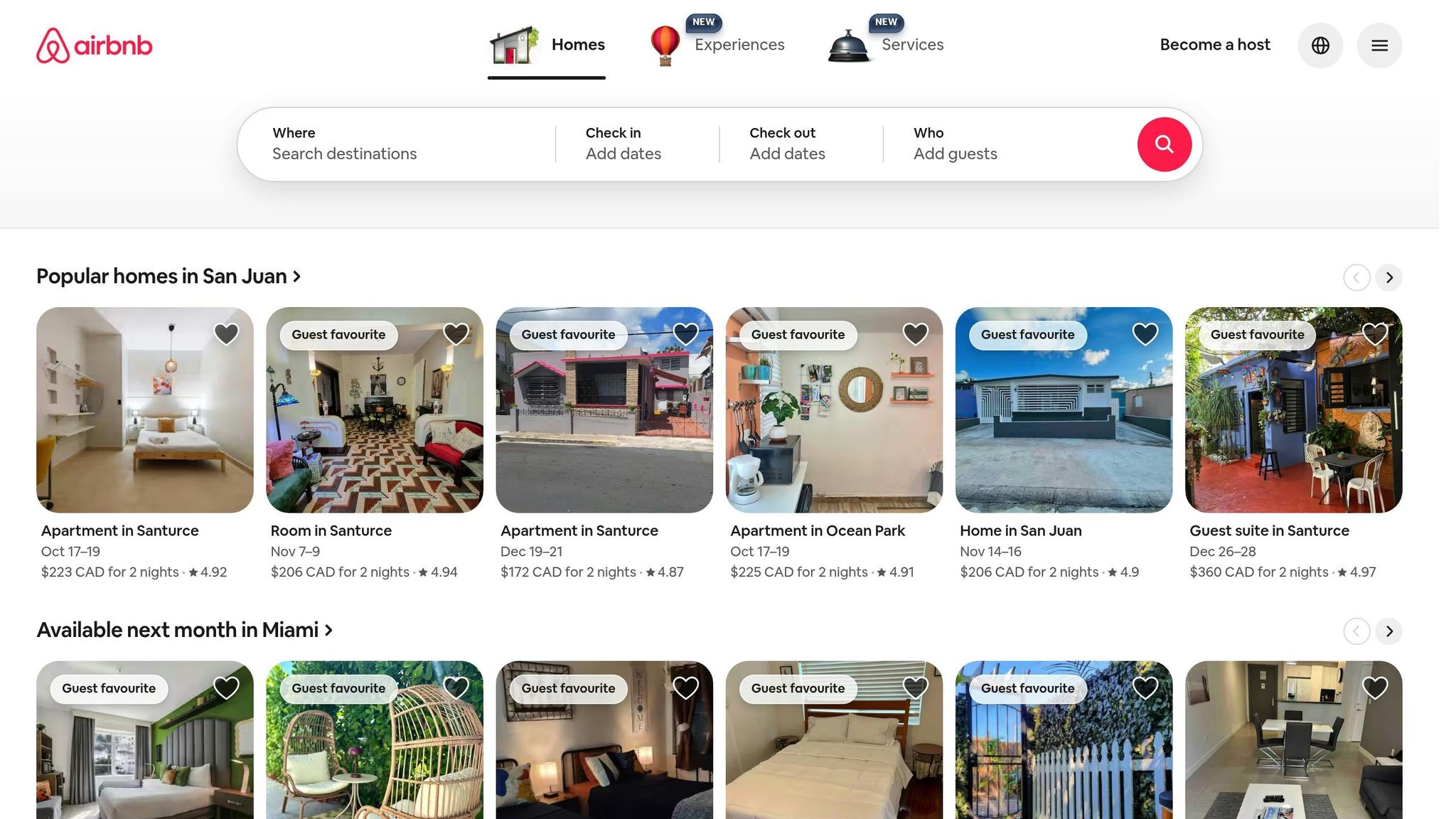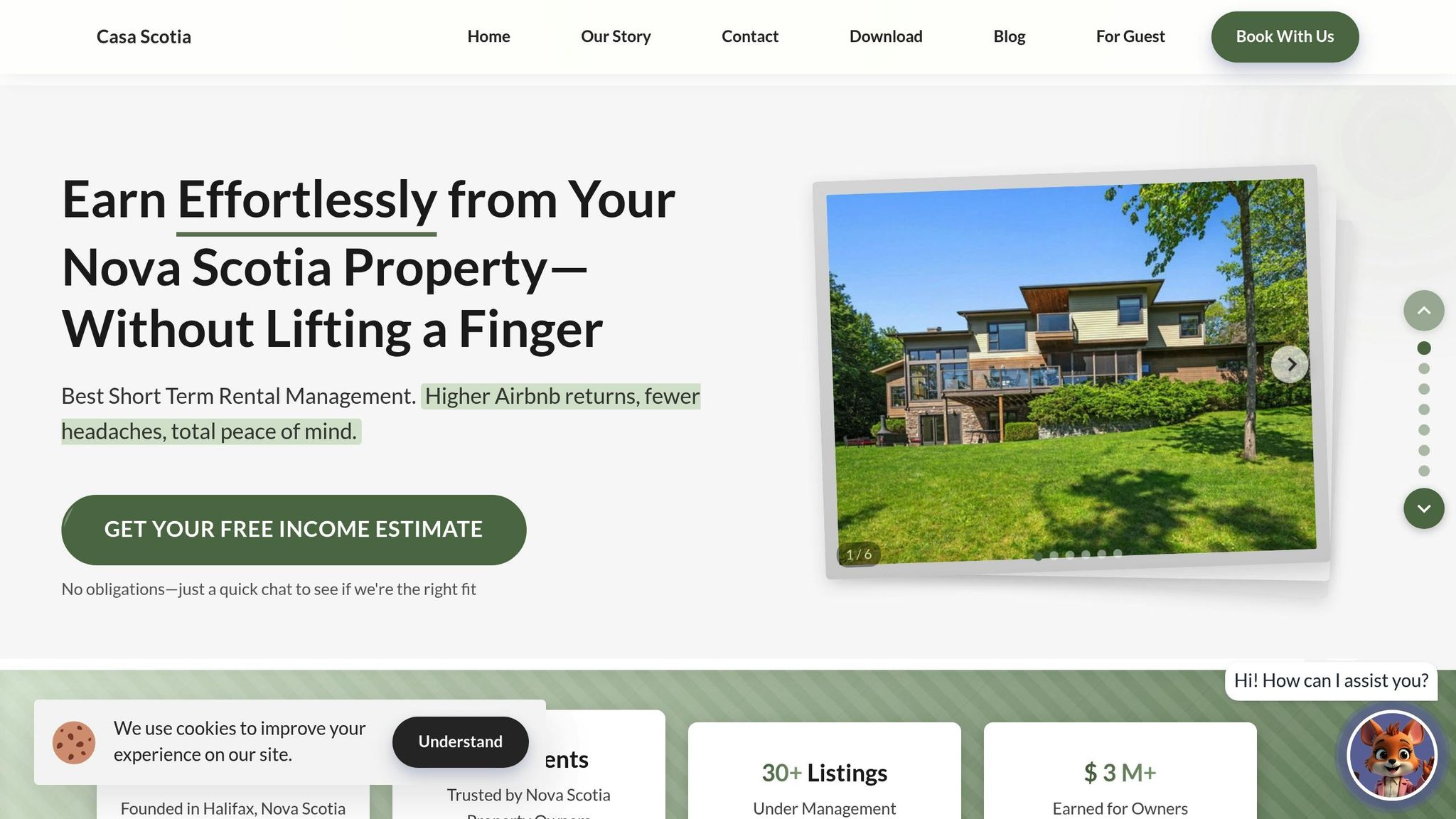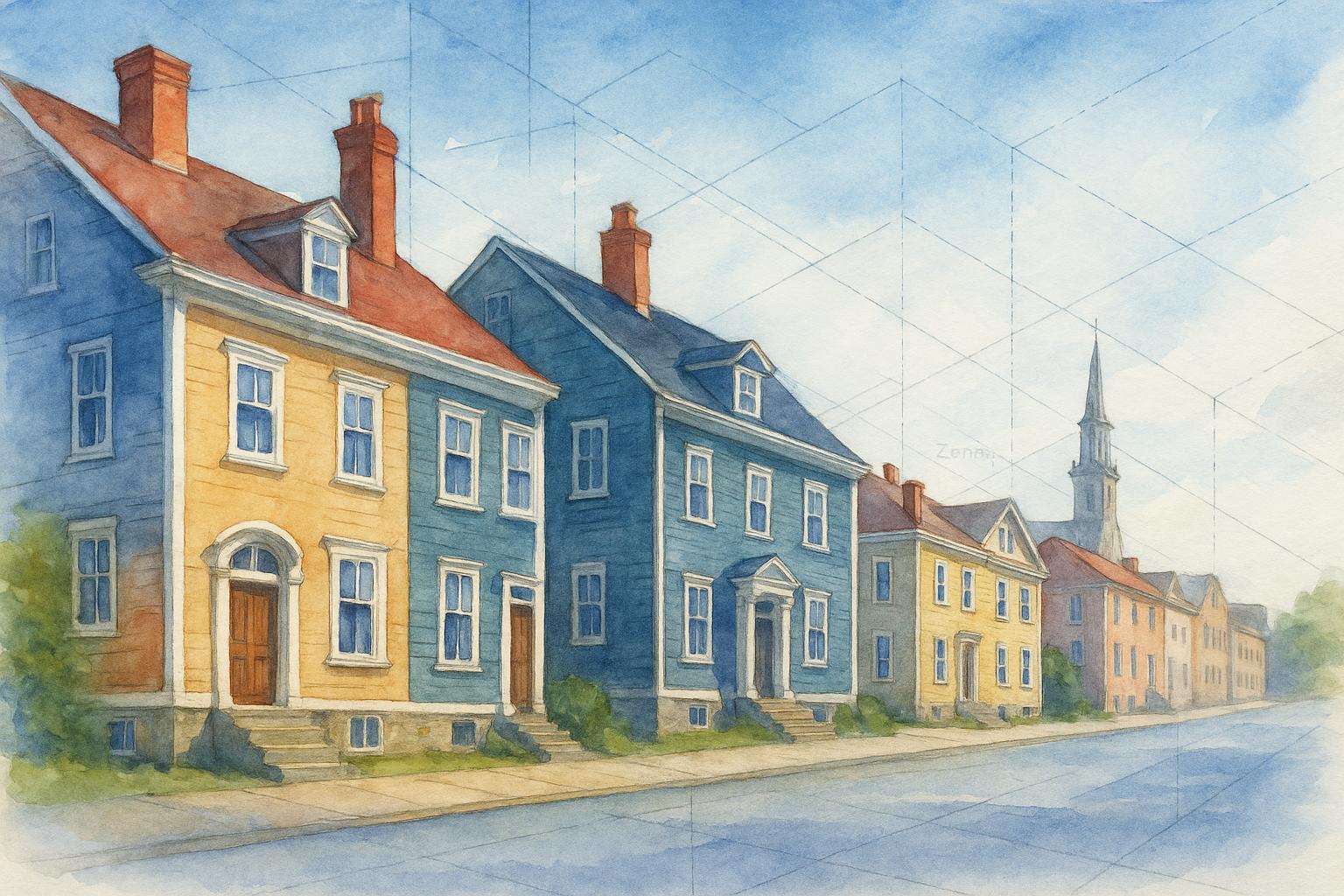If you host an Airbnb in Halifax Regional Municipality (HRM), you may need to collect Harmonized Sales Tax (HST) and remit it to the Canada Revenue Agency (CRA). Here’s what you need to know:
- Threshold: If your short-term rental revenue exceeds $30,000 CAD in four consecutive quarters, you must register for HST.
- HST Rate: Nova Scotia’s HST rate is 15%, effective since April 1, 2025.
- Short-Term Rentals: Stays under 31 days are taxable and count toward the $30,000 threshold. Stays over 31 days are HST-exempt.
- Registration: You can register online through the CRA’s Business Registration Online portal or by phone.
- Airbnb Automation: Airbnb can help collect HST if you provide your GST/HST number. For direct bookings, you must handle HST manually.
- Expenses and ITCs: Registered hosts can claim Input Tax Credits (ITCs) on eligible expenses like cleaning, maintenance, and platform fees.
- Filing Deadlines: Filing frequency depends on your taxable revenue. Monthly and quarterly filers must file within one month of the period's end, while annual filers have three months.
Failing to comply with HST rules could lead to penalties. Keep detailed records of your income, expenses, and HST collected or paid to stay compliant with CRA requirements.
GST on AirBNB's in Canada - Must watch for short term rental owners!

When You Must Collect HST on Airbnb Bookings in HRM
Whether or not you need to collect HST on your Airbnb bookings in Halifax Regional Municipality (HRM) depends on two key factors: your annual taxable revenue and the length of your guests' stays.
HST Thresholds and Exemptions
If your taxable income from short-term rentals exceeds $30,000 CAD within four consecutive calendar quarters, you are required to register for HST and start collecting it from your guests [1][3]. This threshold specifically applies to rentals where the stay is less than one month [3].
Here’s what counts toward that $30,000 threshold: taxable income includes nightly rental rates, cleaning fees, and any additional charges for stays shorter than 31 consecutive nights. If you cross this threshold, you must register for a GST/HST account with the Canada Revenue Agency (CRA) within 30 days [1].
For rentals lasting one month or more, the revenue is GST/HST-exempt and does not contribute to the $30,000 threshold [3]. For example, if you charge $150 per night and rent out your property for 200 nights in a year, your total revenue would hit $30,000. However, if 50 of those nights are part of month-long stays, only the income from the remaining 150 nights would count toward the threshold.
If you don’t provide your GST/HST ID to Airbnb, the platform will automatically collect and remit the taxes on your listing price, cleaning fees, and guest service fees on your behalf [1][2]. With the registration requirements covered, let’s dive into Nova Scotia’s HST rate.
The 15% HST Rate in Nova Scotia
Nova Scotia has a 15% HST rate, which has been in place since April 1, 2025 [4][5]. This rate includes a 5% federal GST and a 10% provincial portion [4][5][6]. When you collect HST from your guests, you’re collecting both portions in a single transaction, which you then remit to the CRA during your filing periods.
How to Register for HST with the CRA
If you're required to start collecting HST, you'll need to register for a GST/HST account with the Canada Revenue Agency (CRA). This process ensures you're meeting your obligations once your rental revenues exceed $30,000. Here's how to get started.
What You’ll Need to Register
Before registering, have the following details ready:
- Personal Information: Your last name, SIN, birth date, and postal code.
- Business Information: Business name, Business Number (BN) if you already have one, business structure, owner details, addresses, business activity, the effective registration date you’ve chosen, fiscal year details, and an estimate of your annual revenue. [7]
How to Register
You have a couple of options to register for a GST/HST account:
-
Online via the Business Registration Online (BRO) Portal:
Log in to your CRA account and select "Business Registration Online." You’ll need to complete the process in one sitting, as sessions time out after 30 minutes. Make sure to save or print your Business Number (BN) and GST/HST account number during the session - these details won’t be sent to you separately.
If you're in Ontario or Nova Scotia, BRO provides a direct link to the provincial registration site, making it easier to register for any required provincial programs at the same time. [7] -
By Phone:
Call the CRA’s business accounts line at 1-800-959-5525. This option lets you speak directly with a CRA representative who can guide you through the process and address any questions. While it may take longer than the online method, it’s a helpful alternative if you need extra assistance. [7]
Following these steps will ensure you're set up to collect and remit HST properly. Save your registration details for future reference.
How to Collect HST from Guests
Once you've registered for HST, it’s essential to charge 15% on every booking. Airbnb offers tools to help automate this process, but you’ll need to set up your account correctly to remain compliant.
Setting Up HST Collection in Airbnb
Airbnb makes it easy to automate HST collection by allowing you to input your HST registration number. To do this, go to your host dashboard and find the "Taxes" section under your listing settings. Enter the GST/HST account number you received during your registration with the CRA.
When entering your tax details, select "Nova Scotia" as your location and set the tax rate to 15%. This ensures Airbnb calculates and applies the correct HST rate to all bookings made for your Halifax Regional Municipality (HRM) property. The platform automatically adds the HST amount during the booking process.
Important: Keep in mind that Airbnb only collects HST for bookings made through their platform. If you take direct bookings from other channels, you’ll need to handle HST collection yourself using an invoicing system.
Next, decide how you want to present HST in your pricing.
2 Ways to Add HST to Your Rates
You can incorporate HST into your pricing in one of two ways:
-
HST as a Separate Line Item
Display HST as a distinct line item. For example, if your nightly rate is $200, guests will see:$200.00 + $30.00 HST = $230.00 total. This approach is transparent and simplifies bookkeeping. -
HST Included in Your Listed Rate
Include the 15% HST within your listed price. For instance, if you want to earn $200 per night, list your rate as $230 and indicate that "HST is included." This provides guests with an all-inclusive price, making the booking process straightforward. Just ensure your records clearly separate the HST portion for CRA filing purposes, and mention in your listing that the rate includes HST.
sbb-itb-b5e1074
Calculating HST and Input Tax Credits
Once you're set up to collect HST, the next step is to calculate it accurately and keep track of Input Tax Credits (ITCs). These calculations are essential for determining the tax you owe and the credits you can claim.
How to Calculate HST on Bookings
For Airbnb bookings in Nova Scotia, a 15% HST applies to the nightly rate, cleaning fees, and any additional services you charge.
For example, if your nightly rate is $180.00 and you add a $50.00 cleaning fee, the HST calculation would look like this:
($180.00 + $50.00) × 15% = $34.50 HST
The total amount your guest pays would then be $264.50.
If you use an all-inclusive pricing model, you can break down the base amount and the HST portion for your records by dividing the total rate by 1.15. For instance, if your all-inclusive rate is $230.00:
$230.00 ÷ 1.15 = $200.00 (base amount)
This means the HST portion is $30.00.
Tracking Business Expenses for ITCs
Input Tax Credits (ITCs) allow you to recover the HST you’ve paid on expenses directly related to your short-term rental activities. However, to claim ITCs, you need to carefully document eligible expenses.
"Can I claim input tax credits on cleaning, supplies, and platform fees? Only to the extent of taxable activity (short-term stays) and if you're registered/required to register. Expect ITC adjustments if your commercial-use percentage falls." – Orbit Accountants [8]
Common expenses eligible for ITC claims include cleaning services, supplies, and platform fees charged by Airbnb. To qualify, these expenses must be tied directly to your short-term rental activities. The portion you can claim is based on your property's commercial-use percentage.
For example, if your property is rented out for 200 nights in a year (out of 365 days), the commercial-use percentage would be approximately 55%. This means you can claim ITCs on 55% of eligible expenses like utilities, insurance, and maintenance. Use a logical allocation method to calculate this percentage - this could be based on the number of nights rented, the area used for business, or the revenue generated [8].
It’s crucial to maintain separate records for HST collected (Payable) and HST paid on expenses (Receivable). For instance, in March 2025, a property owner using Mi Property Portal recorded an HST Payable balance of $5,000.00 and an HST Receivable balance of $1,000.00. After adjusting these amounts, they owed $4,000.00 to the CRA [9].
Be sure to document any exempt periods separately to avoid overstating ITCs. Overstating ITCs can lead to CRA audits and potential repayments with interest. If your commercial-use percentage drops significantly, you may need to adjust previously claimed ITCs, which could result in partial repayments [8].
Finally, keep all receipts, invoices, and related documentation for at least six years. Make sure to record the HST paid, the business purpose of each expense, and how you calculated the eligible percentage for ITCs. This kind of detailed record-keeping will help you stay compliant and prepared for any CRA reviews.
Filing HST Returns and Making Payments
Once you've calculated your HST obligations and Input Tax Credits (ITCs), the next step is to file your returns and make your payments on time.
Filing Deadlines and Methods
Your filing and payment deadlines are tied to your GST/HST reporting period, which the Canada Revenue Agency (CRA) assigns based on your annual taxable supplies.
- Monthly and Quarterly Filers: Both your HST return and payment are due one month after the end of your reporting period [10].
- Annual Filers: Most annual filers must submit their HST returns and payments within three months after their fiscal year ends [10].
- Self-Employed Individuals: If your fiscal year ends on December 31, your HST payments are due by April 30, while your returns are due by June 15 (or June 16 for the 2024 tax year) [10].
Calculating Your HST Payment
Once you know your deadlines, calculate your net tax amount. This is done by subtracting the total ITCs you’ve claimed from the total HST you’ve collected during the reporting period. The result will show whether you owe money to the CRA or are eligible for a refund.
Here’s an example:
- HST Collected: $3,600.00
- Less ITCs Claimed: $900.00
- Net HST Owing: $2,700.00
If your ITCs exceed the HST you’ve collected, you’ll receive a refund. For instance, if you collected $1,200.00 in HST but had $1,500.00 in eligible ITCs, you’d be entitled to a $300.00 refund.
When filing your HST return, ensure you report your base taxable supplies, the HST collected, and your ITC claims accurately. It’s also essential to keep records and copies of your returns and payment confirmations for at least six years, as the CRA may review them in the future.
How Casa Scotia Handles HST for Property Owners

Navigating HST compliance while managing an Airbnb property can feel overwhelming. Casa Scotia takes the hassle out of tax reporting with its full-service management approach, allowing you to focus on boosting your rental income while staying aligned with CRA regulations. Their automated system integrates seamlessly with your operations, ensuring smooth and consistent compliance.
Simplified HST Collection and Reporting
Casa Scotia’s management system makes HST collection straightforward. When guests book your property, the system automatically calculates and applies the 15% HST, significantly reducing the risk of errors. Through the owner portal, you can access real-time data, including HST amounts collected per booking, monthly totals, and detailed transaction breakdowns.
The service also keeps secure digital HST records for six years, providing you with monthly or consolidated reports. These reports include rental income, HST amounts, and eligible expenses, along with booking details and payment confirmations. This ensures you have everything you need in case of a CRA review.
Monthly Reports for HST Filing
Each month, you’ll receive reports that clearly outline gross rental income and HST collected, giving you the key numbers required for CRA filings. These reports also detail business expenses such as cleaning fees, maintenance costs, and platform commissions, which are helpful for calculating Input Tax Credits.
For those who file quarterly or annually, Casa Scotia offers consolidated reports that summarize HST collections and related expenses over longer periods. This organized system ensures you’re always prepared for filing deadlines and compliance requirements.
Conclusion: Staying Compliant with HST Requirements
If you're an Airbnb host in HRM, staying on top of HST requirements means keeping a close eye on your revenue, collecting taxes correctly, and filing everything on time. Regularly check your earnings against the HST threshold, ensure your Airbnb account is set up to collect the tax, and submit returns promptly to the CRA. Keeping thorough records is a must - it’s your best defence against potential issues.
Good record-keeping isn’t optional. Track every booking, the HST you collect, your business expenses, and any Input Tax Credits. Hang on to booking confirmations, receipts, and any expense-related documents. Also, don’t forget local rules like the Halifax tourism levy, which should be part of your overall compliance strategy.
Once you register for HST, you’re responsible for meeting all obligations, no matter if your income later drops below the threshold. On the flip side, if you’re not registered, Airbnb will handle the collection and remittance of HST for you[1][2]. Be sure your Airbnb account correctly reflects your registration status to avoid double taxation or missed payments.
In addition to HST, Halifax hosts need to consider other local requirements, like the tourism marketing levy. This levy is applied to accommodations in Halifax and must be remitted monthly, separate from HST[11]. Make sure you’re aware of its distinct rules and deadlines.
Non-compliance can be costly. Late filings, errors in calculations, or failing to remit collected HST can result in penalties and interest charges. To avoid these headaches, monitor your earnings carefully and register as soon as you hit the threshold.
Whether you handle compliance yourself or hire a professional, staying organized and informed is key. By understanding your responsibilities and keeping detailed records, you’ll ensure your rental business operates smoothly and remains compliant with Canadian tax laws.
FAQs
What should I do if my Airbnb rental income is approaching the $30,000 CAD threshold for HST registration?
If your Airbnb rental income is approaching the $30,000 CAD mark, it’s crucial to monitor your total revenue over any four consecutive calendar quarters. Once your taxable income surpasses this threshold, you’re required to register for HST within 29 days.
After registering, you’ll need to begin charging HST on your bookings and ensure the tax you collect is properly remitted to the Canada Revenue Agency (CRA). Keeping accurate records and staying on top of these requirements will help you steer clear of penalties or complications.
How do I properly collect and remit HST for my Airbnb bookings in Halifax Regional Municipality?
To meet HST obligations for your Airbnb bookings in Halifax Regional Municipality (HRM), the first step is figuring out if you need to register for an HST account. If your total revenue surpasses $30,000 over four consecutive quarters, registration becomes mandatory. Once you're registered, you’re required to charge and collect HST at 15% on your short-term rental income.
You’ll also need to remit the HST you collect to the Canada Revenue Agency (CRA) by filing regular returns through their online portal. If you’re not registered, Airbnb might handle the tax collection and remittance for you, but it’s essential to double-check your registration status and reporting responsibilities. Keeping thorough records will help you stay on top of deadlines and steer clear of penalties.
What happens if I don’t follow HST rules for my Airbnb in Halifax?
If you don’t follow HST regulations in the Halifax Regional Municipality, the consequences can be quite severe. For example, failing to file after receiving a demand notice could lead to a $250 fine. Filing late isn’t cheap either - you’ll face a penalty of 1% of the amount owed, plus an extra 25% of that 1% for every month the payment is overdue. And if you neglect to remit the HST you’ve collected, you could be hit with a 10% penalty on the unpaid tax, along with interest on the outstanding balance.
The best way to steer clear of these penalties? Make sure you’re meeting all filing and payment deadlines, and double-check that the HST you collect is properly remitted to the CRA. Staying organized can save you both money and stress.
Related Blog Posts
- Short term rental regulation in HRM ( Halifax, Bedford, Dartmouth )
- Short-Term Rental Regulations in Nova Scotia: Cape Breton Island (Sydney, Baddeck, Inverness)
- Short-Term Rental Regulations in Nova Scotia: Yarmouth & Acadian Shores (Yarmouth, Clare, Digby)
- HST for Nova Scotia STR Hosts: Do You Need to Register at the $30,000 Threshold?



